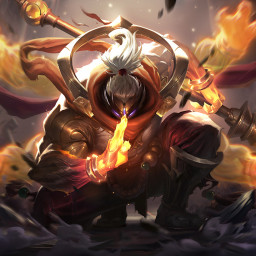II. You are going to read an article in which four crime writers talk about other authors they like. For questions 1–10, choose from the crime writers (A–D). The writers may be chosen more than once.
| Which writer |
1. ________ | enjoys the slow pace of the book? |
2. ________ | feels overshadowed by this author? |
3. ________ | appreciates the author’s precise style of writing? |
4. ________ | mentions a detective with an unusual background? |
5. ________ | believes a previous job influences the author’s work? |
6. ________ | had not expected to enjoy the books? |
7. ________ | likes the way the books reflect what’s going on in the world? |
8. ________ | admires the way the author is not influenced by what is expected? |
9. ________ | prefers books that show the feelings of the author? |
10. ______ | is impressed by the consistent high standard of an author’s books? |
A. John Harvey on Peter Temple
I started reading Temple’s books about 10 years ago, and at the time it was fairly straightforward crime fiction set in Australia, a lot of it with a horse-racing background. The books were OK, but not exceptional. Then suddenly with The Broken Shore, he just hit something quite different and moved up a level. He is writing the kind of books I‘ve spent 20 years trying to write, and writing them better than I do. He’s using crime fiction not just to tell a story, but to say something about today’s society. He really gets the connections between politics, the police and the media right. I love the writing – it‘s really taut and a lesson in how to say a lot without being too wordy.
B. Sara Paretsky on Liza Cody
There is a lot of good, stylish writing out there that puts me off because it’s unfelt. I’m looking for someone who has a gift for storytelling, and who is willing to do the hard work of digging into the emotional aspect of life. Liza Cody does that, and she takes a lot of risks. She doesn’t just do the easy thing to be recognized in the marketplace; she goes where the story and emotion takes her. For instance, she had to self-publish her most recent book, Ballad of A Dead Nobody, because no one in the industry was willing to. These days, you’re told you have to create a brand or a series, with a recognizable link. She is willing to turn her back on that and focus on what her inner voice is telling her.
C. Mark Billingham on Michael Connelly
The first Connelly book I read was The Poet, his first standalone novel and a big breakthrough for him. By then, he had written four books in his Harry Bosch series, which I went back to read. He has maintained a level of quality through a long-running series – an incredibly difficult thing to achieve. People talk about how you create suspense, tricks such as cliffhangers and reveals, but actually the real secret is to create characters the readers care about. Bosch, a detective in the Los Angeles Police Department, is a character who has grown and changed, who you come to know and care about. All that aside, he is a fantastic storyteller, probably the best in modern mystery fiction. I think his days as a journalist – he was a crime reporter on the Los Angeles Times – stood him in good stead because he never forgets the story.
D. Ann Cleeves on Johan Theorin
I read Theorin’s first novel, Echoes from the Dead, after my Swedish editor had said: ‘There’s this Swedish author writing four books set on an island in the Baltic – I wonder if he stole the idea from you?’ because I’ve written novels set in the Shetlands. I was a bit annoyed – although I’m sure it was coincidental – so I wasn’t prepared to like it. But I really loved it. He has this interesting detective who is elderly and lives in a sheltered housing complex, so he can’t be out there doing car chases. One of the books is about this crumbling house by the shore and you’re not sure if there’s a supernatural element. It has the most wonderful climax. Theorin is prepared to take his time over the telling of the story, which is unusual these days. If you look at the bestsellers, they usually move quite rapidly. There is nothing wrong with that, but Theorin writes in a much deeper, literary way.









